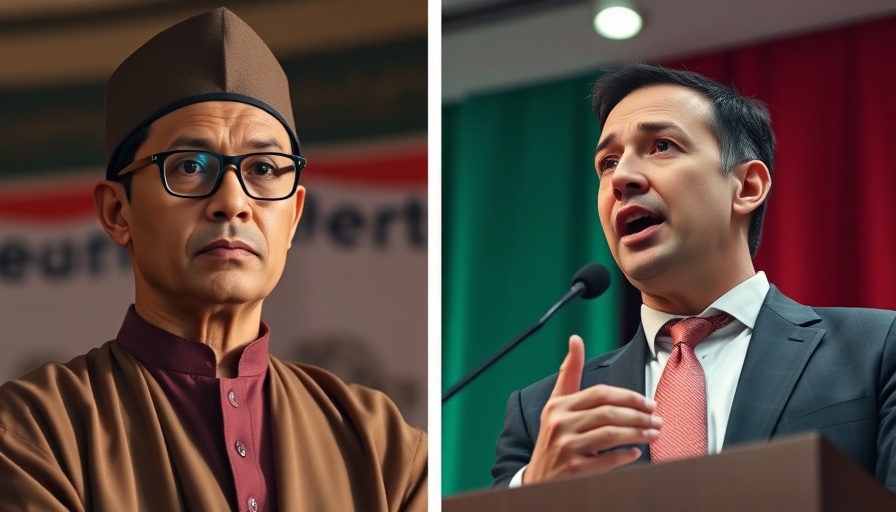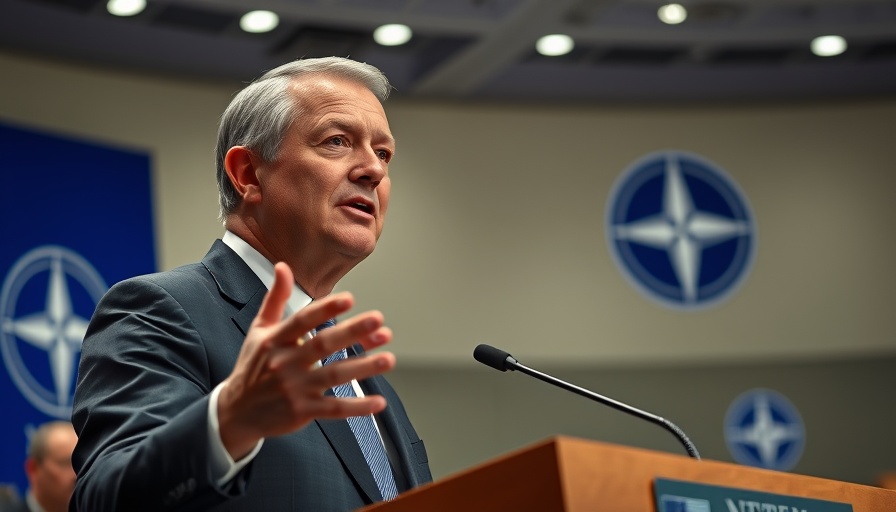
Atiku Abubakar's Title Controversy: Is it Politics as Usual?
In the swirling waters of Nigerian politics, issues often emerge that evoke public interest and debate, and the recent situation regarding the alleged stripping of Atiku Abubakar, the former Vice President of Nigeria, of his traditional title, Waziri Adama, is no exception. As political dynamics shift, accusations of political maneuvering often surface, but the facts about this situation suggest a deeper examination is warranted.
In '2027 Elections: Adamawa Government Denies Stripping Atiku of Traditional Title,' the video provides insights into the political undercurrents surrounding former Vice President Atiku Abubakar's traditional title, prompting deeper analysis.
The Political Drama Unfolded
The government of Adamawa state, led by Governor Amadu Fintiri, faced criticisms and media scrutiny following their decision affecting traditional title holders, including Abubakar. However, during a recent interview, Professor John Gamza, the special advisor to the governor, sought to clarify these matters, emphasizing that the situation cannot accurately be described as a "stripping" of titles. According to Gamza, no official letter confirming such a decision has emerged, suggesting that media narratives may have exaggerated the circumstances surrounding the title change.
Understanding the Legal Framework
The evolving structure of traditional chieftaincy in Adamawa stems from legal amendments intended to modernize and enhance the effectiveness of these institutions. Historically, these titles have been tied closely to the political landscape of Nigeria, and with the state's rich ethnic diversity, adjustments in nomenclature are sometimes necessary. While the government insists these changes are based on cultural preservation rather than political motives, the timing and optics remain contentious among observers.
Political Rivalry or Administrative Change?
As the conversation around Abubakar's title continues, one might consider whether this change signifies a political rivalry between him and Governor Fintiri or an administrative approach to restructure traditional rule amidst increasing ethnic complexities in Adamawa. With many ethnic groups represented in governance, leadership decisions often become intertwined with broader power dynamics. The narrative proposes that political capital might be at play, as Abubakar, a significant figure in the People's Democratic Party (PDP), is positioned in stark contrast to the current administration's maneuvers.
Media Representation: A Double-Edged Sword
The media plays a crucial role in shaping public perception about political changes. In this case, narratives that suggest political targeting contribute not just to Abubakar's reputation but also to the governor's image. As Professor Gamza noted, narratives presented by the press could be viewed as speculative, focused on creating sensationalism rather than a reflective analysis of the intent behind these adjustments. What remains uncertain is whether these changes can bring about genuine improvement in traditional governance or merely stoke political flames.
Defections and Party Dynamics: What's Next for PDP?
The PDP has been rocked by an exodus of key figures citing democratic decay within the party, casting doubts over its cohesiveness as elections loom. As political dynamics shift frequently, the focus stays on whether Fintiri’s administration can rekindle party unity ahead of the 2027 elections. Observers in Adamawa are eager to see just how the governor will manage these intricate party relationships while addressing the challenges of factionalism and external pressures.
Conclusion: A Tapestry of Politics and Tradition
Ultimately, the political scene in Nigeria, especially in Adamawa state, presents a rich tapestry woven with the threads of tradition, governance, and individual ambition. The story surrounding Atiku Abubakar’s title reflects not only local maneuvering but also broader political intrigues that resonate throughout the nation. As citizens follow these developments closely, keeping an eye on how these intricate narratives will unfold in 2027 and beyond remains critical.
 Add Row
Add Row  Add
Add 


 Add Row
Add Row  Add
Add 

Write A Comment